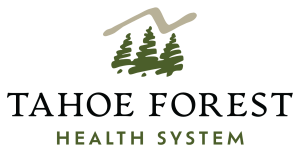Support as a Vital Sign: Why Connection Is Essential
When we consider physical health, metrics that come to mind include blood pressure, pulse, and body temperature, among others. These metrics are considered “vital signs” because they offer clear indicators of health. But what if we’ve been overlooking an essential determinant of health — our support systems? Increasingly, research suggests that social and professional support is just as critical as traditional metrics, influencing everything from mental health to recovery outcomes. It’s time to view support as a vital sign.
Humans are hardwired for connection. Historically, survival depended on being part of a group. Today, our need for support shields us from the modern-day threats of isolation, stress, and chronic disease.
Studies show that people with strong social ties live longer, have lower rates of depression and anxiety, and recover more effectively from illness. In fact, one landmark study from Holt-Lunstad et al. found that lacking strong social connections carries a risk of premature death comparable to smoking 15 cigarettes a day.
Additionally, newly released results from the U.S. POINTER study showed that lifestyle interventions, including cognitive and social stimulation, improved overall cognition in older adults at risk for dementia. Participants in a highly structured program with more support experienced greater cognitive benefits than those in a self-guided program.
Why Support Matters in Health Outcomes
● Mental health: A supportive friend, partner, or group can buffer stress, reduce feelings of loneliness, and encourage healthier coping strategies
● Chronic illness management: Patients with conditions like diabetes, heart disease, or chronic pain often do better when they have a broad support system encouraging adherence to treatment and lifestyle changes
● Life transitions: Divorce, caregiving, retirement, or grief can feel overwhelming when faced alone. Support can make the difference between resilience and prolonged struggle.
Just as doctors measure blood pressure to predict cardiovascular risk, assessing a person’s level of social and professional support could provide critical insight into their overall health trajectory.
Imagine if healthcare providers asked, “Who do you turn to when you’re stressed? How connected do you feel to your community? Do you have professional or peer support for your health challenges?” These questions reveal underlying risks that numbers alone might miss.
By framing support as a vital sign, we acknowledge that health is not just physical—it’s relational. You can have ideal lab results, but if you feel isolated, unsupported, or overwhelmed, your long-term outcomes are at risk.
If support is truly vital, cultivating it should be an intentional process. This can mean:
● Strengthening friendships through regular check-ins
● Joining support groups or wellness programs
● Engaging in faith, community, or volunteer groups
● Asking for professional guidance when facing major life or health transitions
Support is not a luxury; it’s a necessity. Just as we monitor our sleep and diet, we should regularly assess and nurture our support systems. When we frame support as a vital sign, we expand the definition of health to reflect what humans truly need: not only healthy, functioning bodies, but also meaningful, sustaining connection.
If you need help finding support, check with local churches, community organizations, service organizations, community colleges, libraries, agencies, HOAs, and recreation departments, many of whom offer support and interest-based groups. Tahoe Forest Wellness offers health and wellbeing support groups for a wide variety of interests and conditions. Visit tfhd.com/wellness to learn more.

Support Local Journalism

Support Local Journalism
Readers around the Lake Tahoe Basin and beyond make the Tahoe Tribune's work possible. Your financial contribution supports our efforts to deliver quality, locally relevant journalism.
Now more than ever, your support is critical to help us keep our community informed about the evolving coronavirus pandemic and the impact it is having locally. Every contribution, however large or small, will make a difference.
Your donation will help us continue to cover COVID-19 and our other vital local news.










